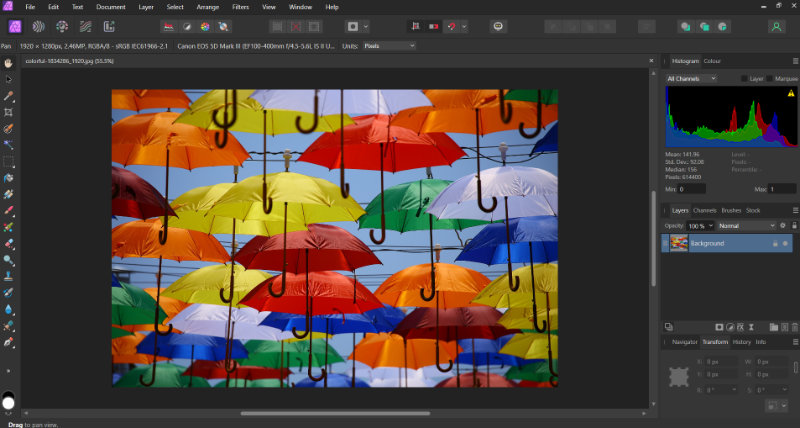We all want to avoid spending money, but these days it's even more important to make savings where you can. At the same time, big companies like Adobe have switched to licences that maximise their income (and enormous profits). It makes sense for them, but it's not great for customers. Happily, there are options.
Important to note: we are not receiving any kind of payment or incentive for this blog post!
We've been using Adobe programmes such as Photoshop and Illustrator for decades - much more than half our lives! We currently use CS6, released in 2012 and the last version available for a one-off cost. This version is technically still supported but only with the original system requirements. There's a possibility that it won't be possible to install it on future operating systems.
In 2013 Adobe launched Adobe Creative Cloud as a subscription-only model. The current business rate for all Creative Cloud apps is £78.58 per month, just shy of £1000 per year. That's per user, so we'd need two licences for both of us to use the software. It's true that this is in part a strategy to deal with pirated software which has been an ongoing issue for Adobe: their programmes are highly desirable and have never been cheap. However for small companies and sole traders, that's a high price to pay.
For a long time Adobe was the main player in graphical design and photo editing software. In the early days there were Mac only programmes such as QuarkXpress but over time Adobe came to dominate the industry for Mac OS and Windows. We all became familiar with their products, to the extent that 'to photoshop' has become a commonly understood word meaning to digitally alter an image (photoshopear is used in Spanish but as far as we know hasn't been approved by the Real Academia Española yet!) When the story about Kate Middleton's altered photos broke in March, it was Photoshop that she had used.
Back in 2018 we wrote about LibreOffice as an alternative to Microsoft Office. LibreOffice is open source software which is free to download and install. We've been using it for years and have never encountered any problems opening Word documents or Excel spreadsheets. Google Drive is another common tool for sharing cloud-based documents and spreadsheets which multiple people can update.
By removing the option to buy software outright, Adobe has opened a gap in the market. Affinity offers a suite of tools to rival Creative Cloud and one of the main features is that you don't need to subscribe (their Universal Licence is about the same cost as two months of Creative Cloud). We've recently purchased Affinity Photo and Designer which were both very straightforward to start using. In fact, Mat prefers Affinity Designer to Adobe Illustrator.

The interfaces were immediately familiar after many years using Adobe products; it makes complete sense for Affinity to capitalise on the existing pool of knowledge. Of course some tools and features have different labels or are in different places, but so far Photo and Designer offer everything that we previously used in Photoshop and Illustrator. We need to do further investigation to check that old .PSD files can be opened without issue in Affinity Photo, but for day-to-day editing these alternatives absolutely fit the bill.
Affinity is produced by Serif Europe, a British software developer and publisher and a subsidiary of the hugely popular Canva design platform.
We'll keep CS6 for the time being alongside Affinity, but next time we need to set up a new laptop it will only be Affinity which we install.
Speaking of Adobe, who remembers when PDFs used to come with a link to download the Adobe Acrobat Reader in case you didn't have it installed? 👵👴
What's your preferred design programme? Share any tips you have for cheaper (or free!) software or app alternatives.
